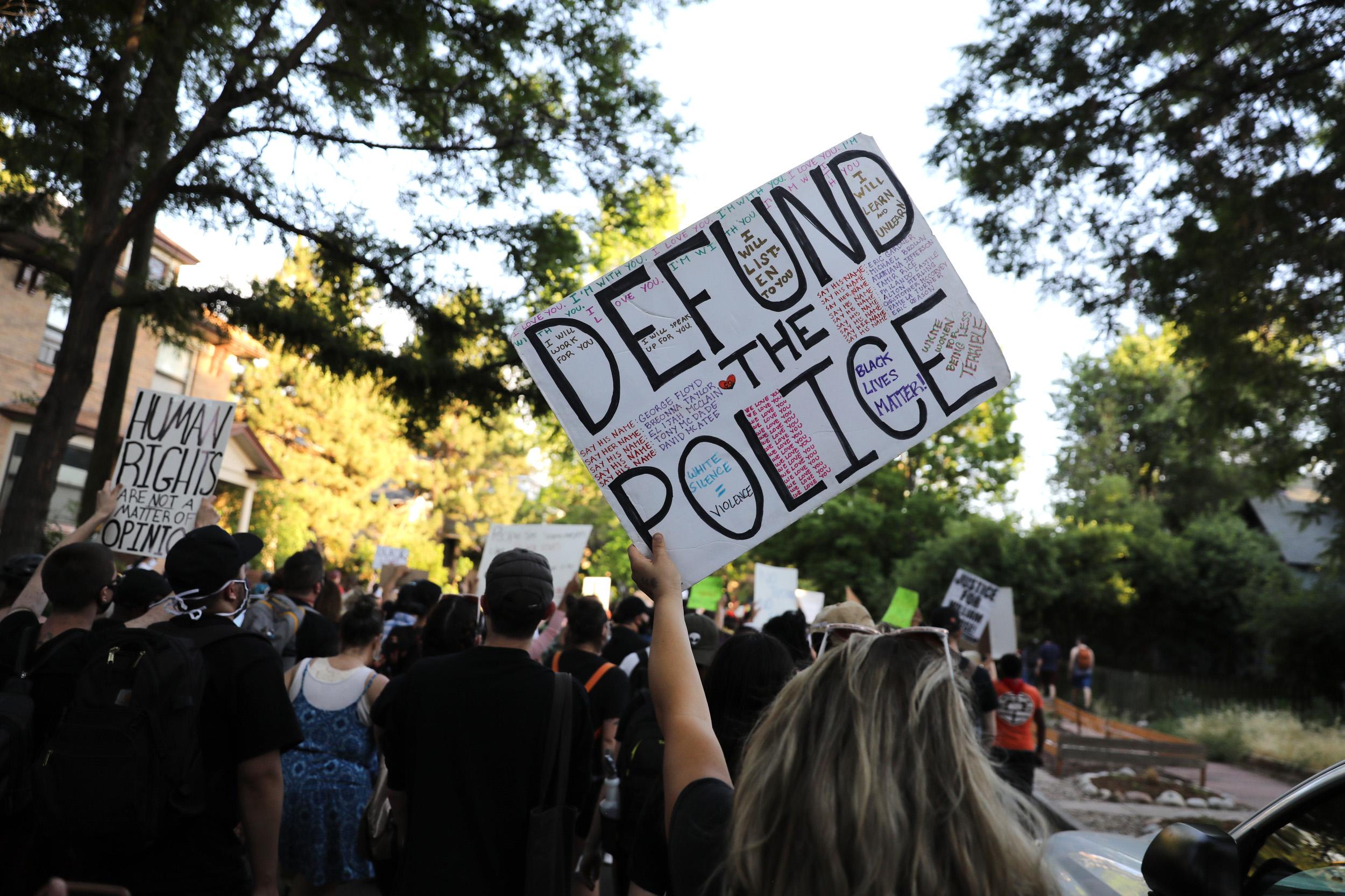Denver Director of Safety Murphy Robinson told elected officials Wednesday that outcries over systemic racism and police violence will translate to a "criminal justice transformation."
Flanked by Denver Chief of Police Paul Pazen, Robinson, whose Department of Safety oversees the police, sheriff and fire departments, told Denver City Council that he will create a new arm of his office focused on "criminal justice and transformation policy." Robinson also told elected officials during a safety committee meeting that he will build a strategic plan for that transformation.
"I dedicate to the citizens of Denver, the mayor, the city council, and all the people that serve in the department of public safety, that we will be a leader in the systematic and strategic transformation in the criminal justice system," Robinson said during a meeting of the council's safety committee. "We owe it to our children and their children to make sure that the experiences that they have with race relations, discrimination and injustice is vastly different from the experiences of our generation and the ancestors before us. To do this, I believe that we must shut our mouths and open our ears, ready to hear the community and how they want policing and criminal justice and the system to look in the 21st century."
Robinson did not commit to details on a new-look law enforcement structure. But according to a presentation by his department based on a "listening tour" he conducted after the first night of protests, people don't want a "tweaking" of an oppressive system. "Re-imaging public safety should be the goal," the presentation stated.
Training, recruitment, improved checks and balances on officers, and building relationships with residents proactively instead of just during emergencies should all play a role, according to what Robinson heard from the public.
Chief Pazen said DPD "needs to root out all oppression, all excessive use of force within our department."
Council members grilled Pazen and Robinson over how and when the Denver Police Department uses force against residents -- in general and during its recent response to people protesting police violence.
Elected officials had a buffet of demands: the release of documents related to investigations into police behavior, statistics on how many officers were new to the force and how many had been trained on Denver's use-of-force policy, the cost of overtime and chemical weapons used on residents, and generally how officers would be held accountable for any abuse of authority.
DPD officers used tear gas and shot foam bullets and pepper balls at protesters, including peaceful activists, according to numerous allegations being investigated by the Office of the Independent Monitor.
In light of centuries of police misconduct punctuated by the killing of George Floyd, criminal justice reformers have asked for serious policy changes ranging from community-led policing to reducing funding to abolishing the police department. On Wednesday, some Denverites demanded that decision-makers dismantle the paramilitary force that has a history of killing Black people at a higher rate than white people.
"I've been at many of these protests, there was pepper spray shot at me, there was tear gas shot at me," said Jesse Parris, a Black man and a regular at city council meetings. "So I know firsthand what this use of force is looking like. And you guys are violating everything that you said that you are going to do. It's complete hypocrisy."
Parris was referring to the police department's use-of-force policy, which instructs officers on how to use lethal and non-lethal force.
While Parris and others blamed police for escalating peaceful protests during the public comment period Wednesday, Robinson and Pazen said police were responding to people throwing bricks and bottles at officers, who are mostly armored during the events.
According to Robinson, 530 inquiries about police conduct during the protests have been opened. The Office of the Independent Monitor has also opened a comprehensive investigation into the police department's actions.
While many protesters blame police for escalating violence, Robinson blamed "rioters" -- he differentiated them from demonstrators -- for the use of chemical weapons in crowd-control tactics, saying that officers had bricks and bottles thrown at them first.
Still, Robinson and Pazen left room for the idea that officers misused their authority, and both embraced the independent review of DPD's response.
"In no way shape or form are we justifying the inappropriate actions by our officers and we will fully hold our team accountable for those actions," Pazen said.














